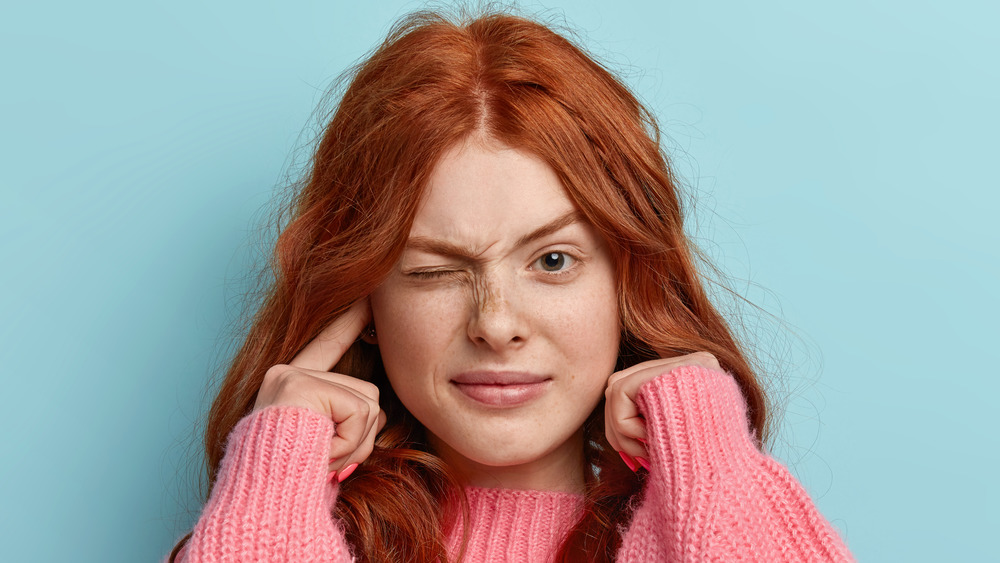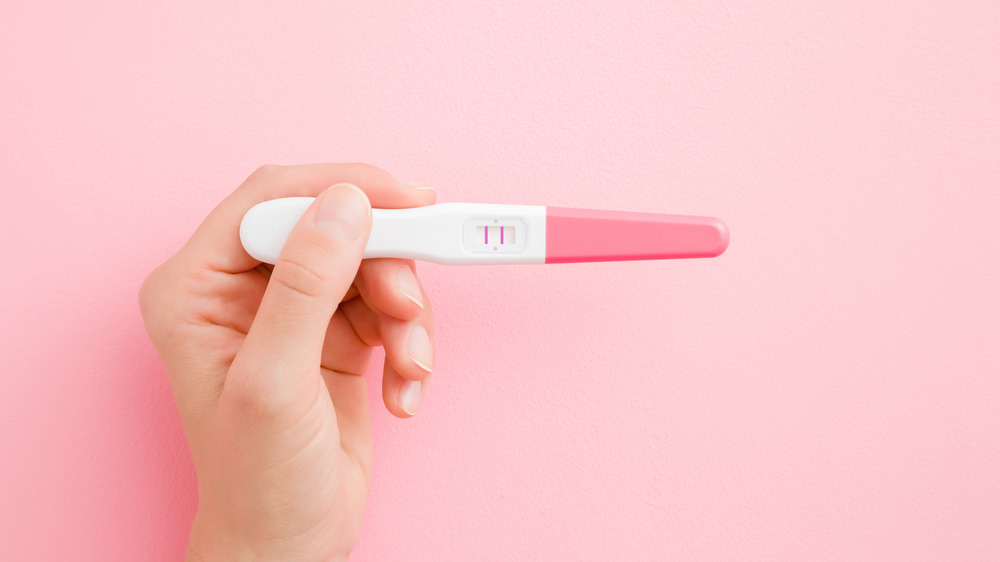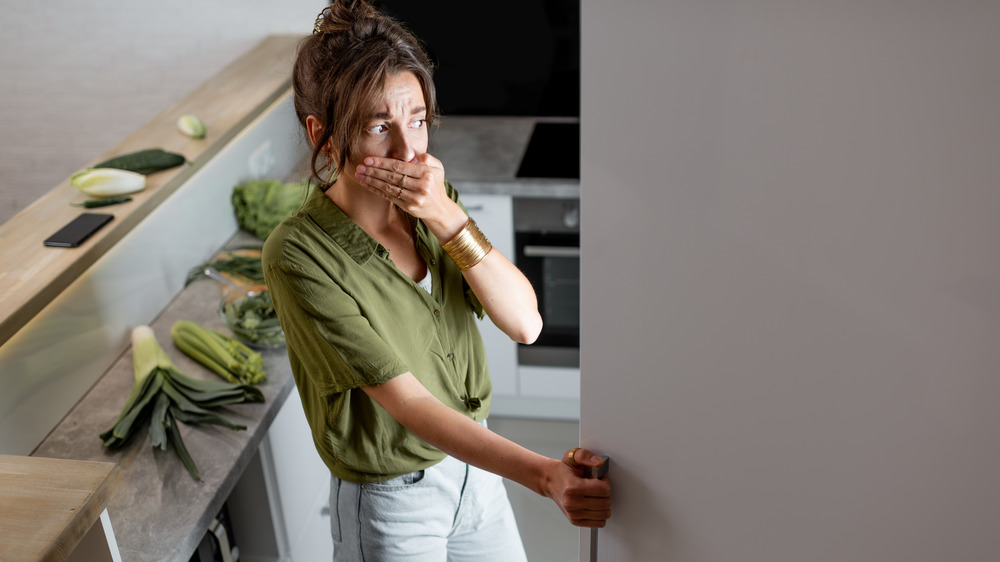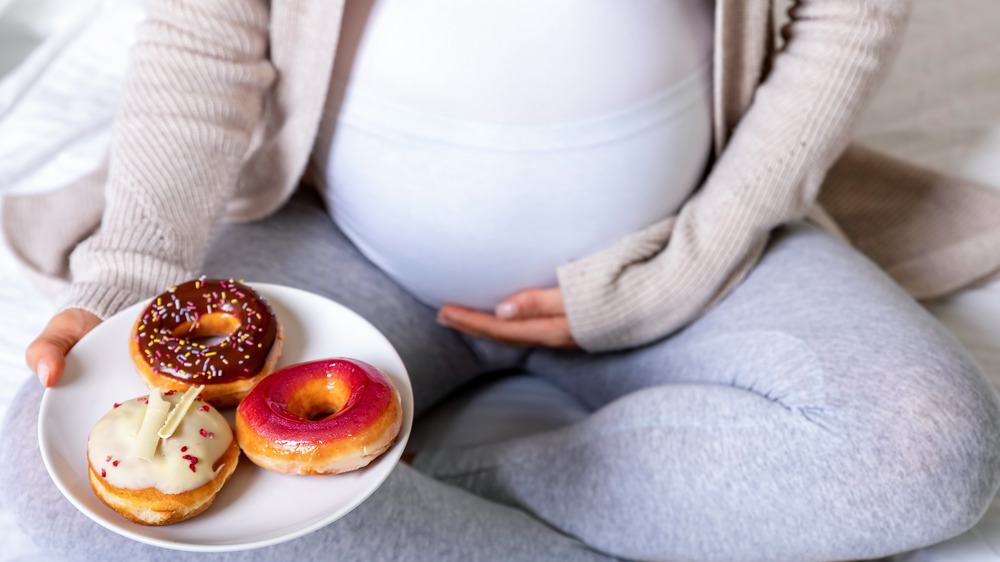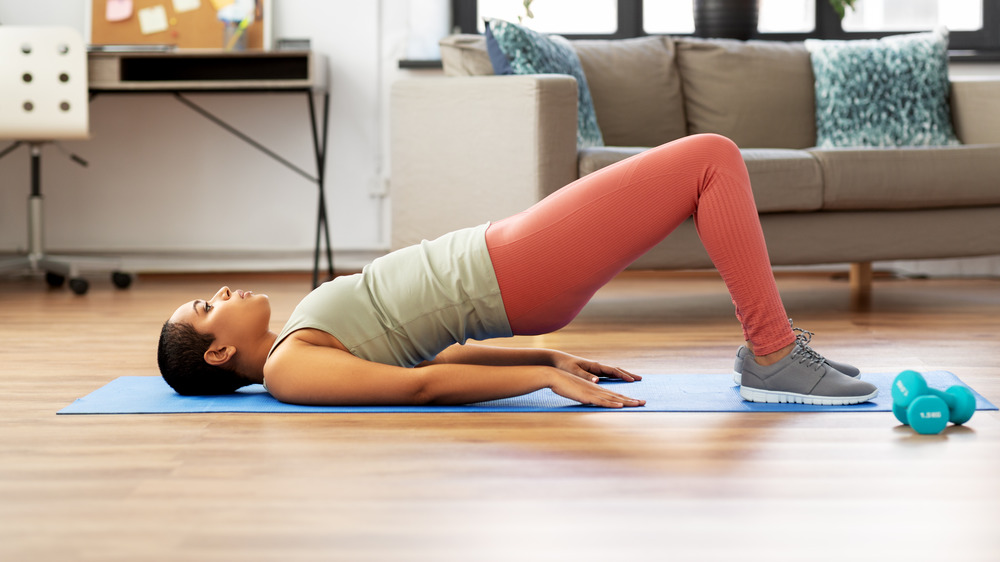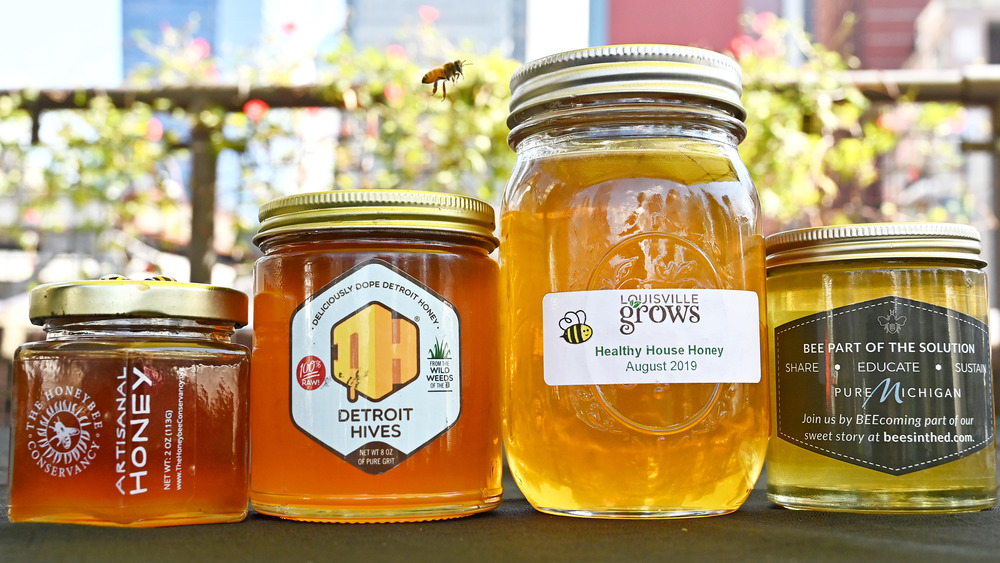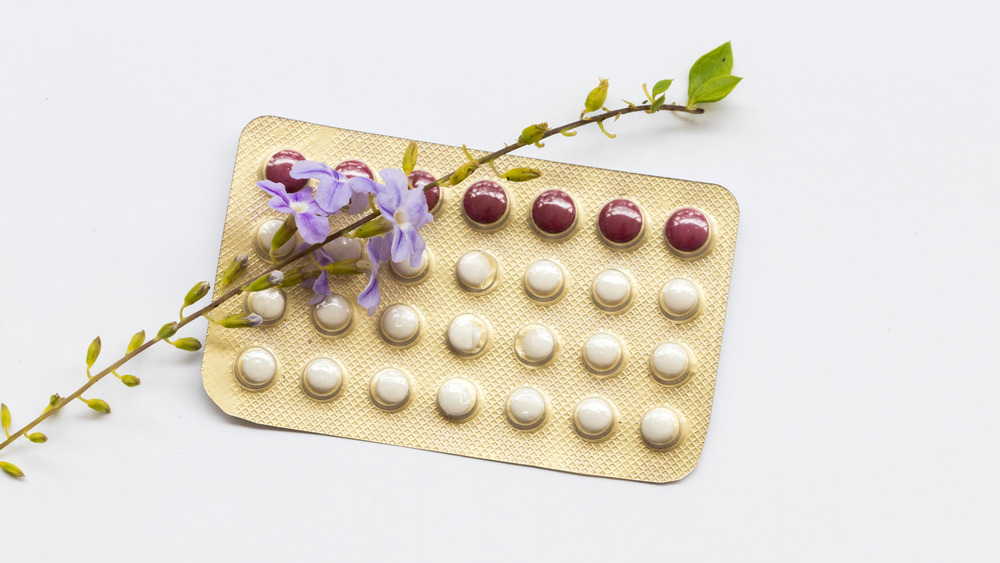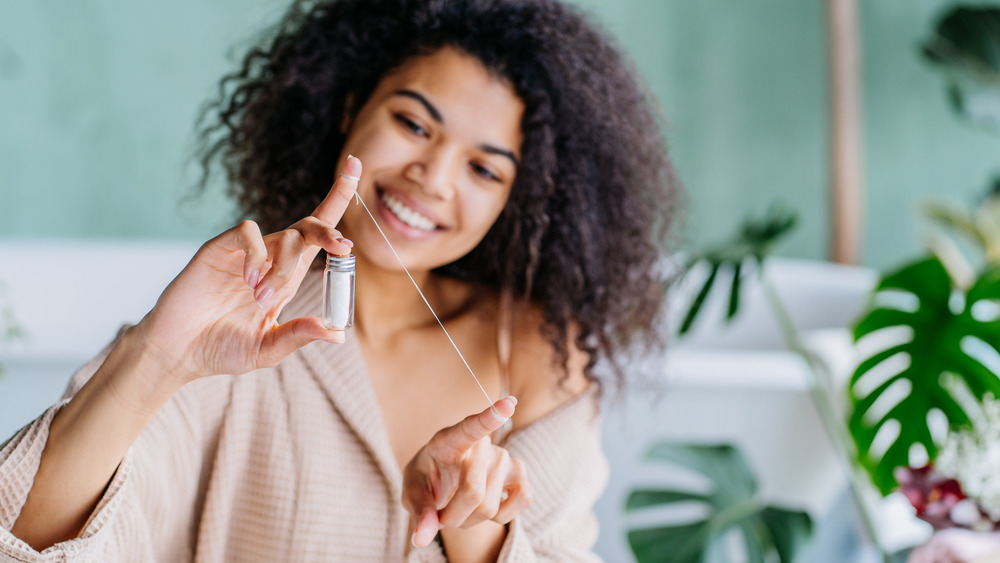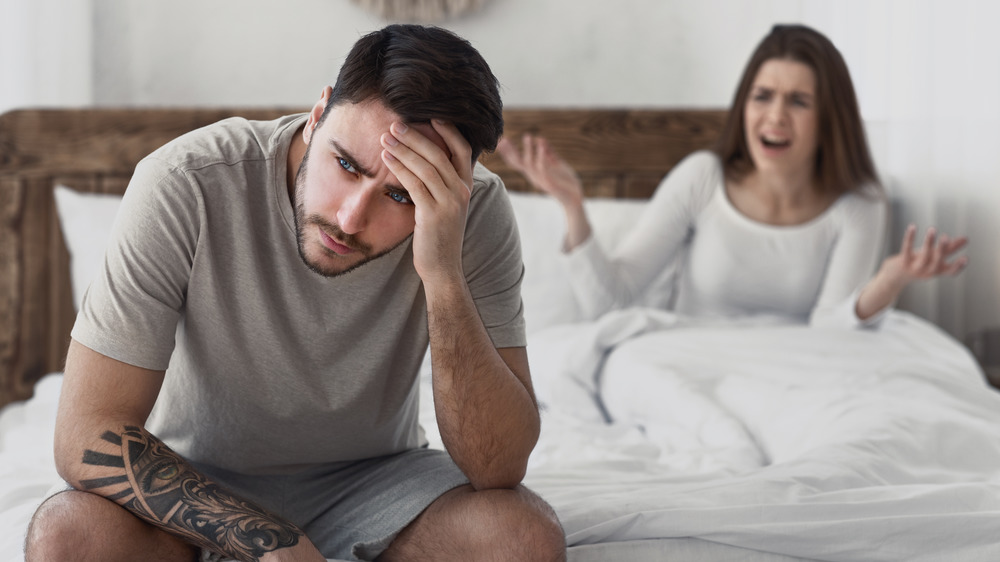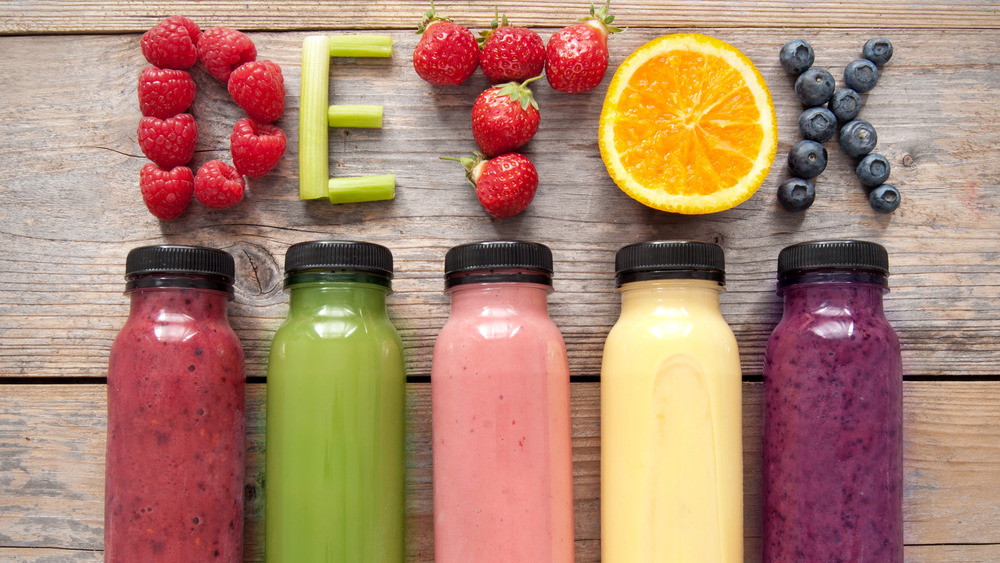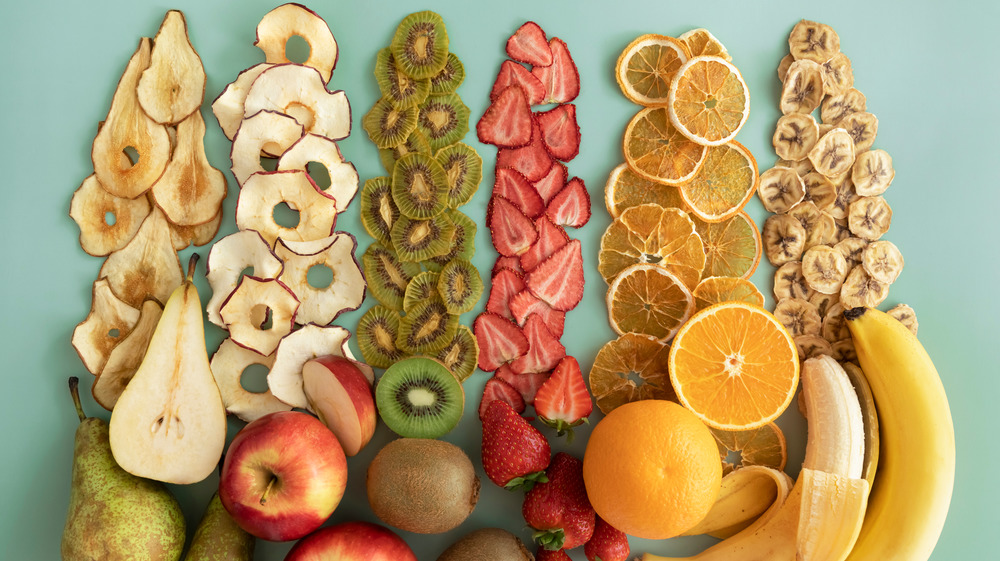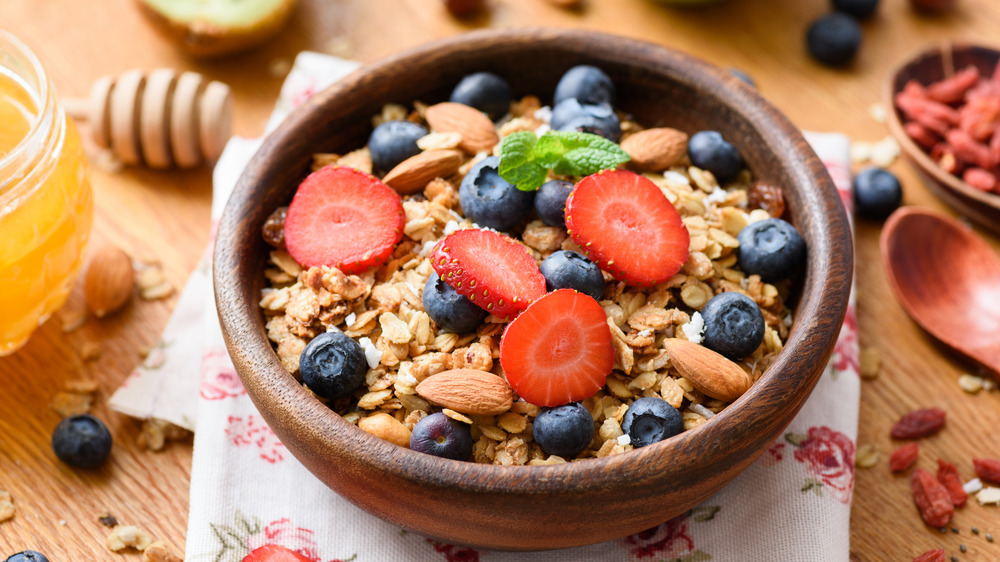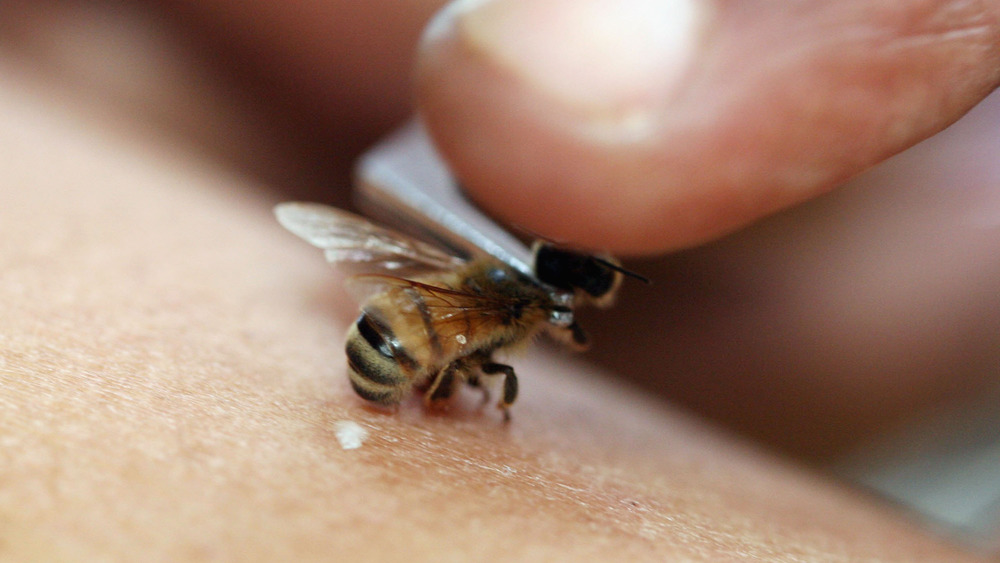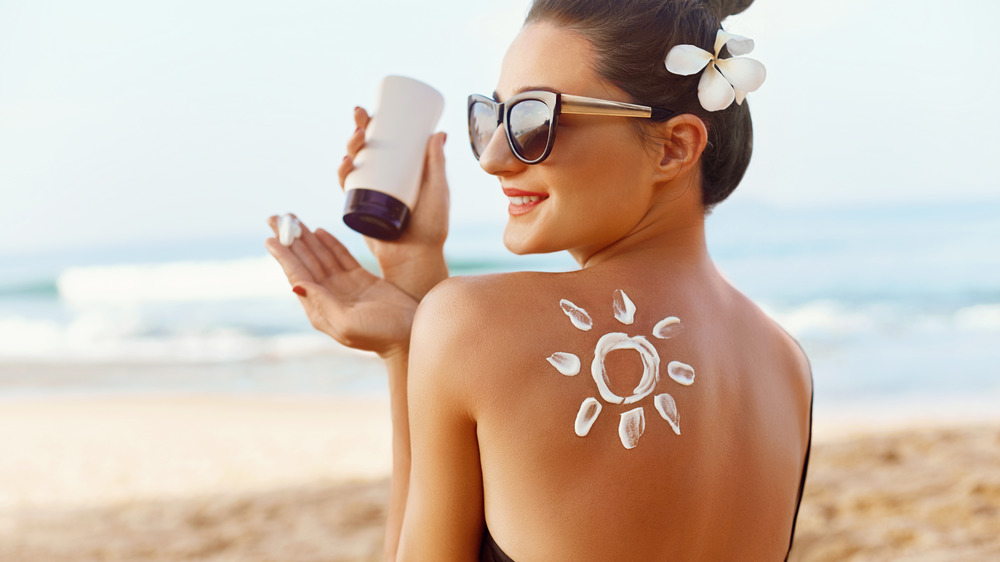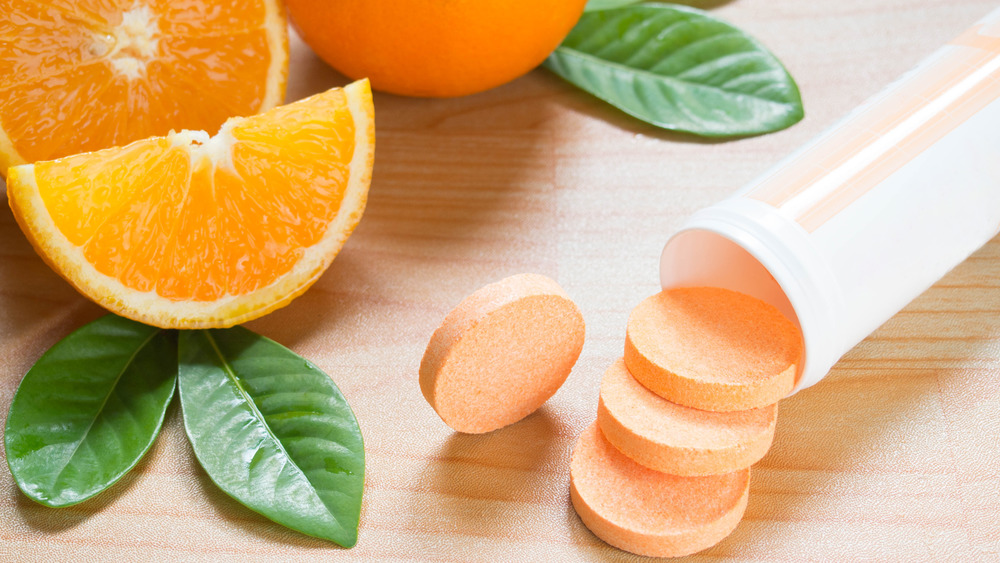The Worst Health Advice You Should Be Ignoring
Health advice is everywhere — your mom's been doling it out to you since you were a little kid, and of course, every major news outlet runs headlines about nutrition and disease prevention. When the information you hear or read about frequently conflicts one another, how are you supposed to separate the wheat from the chaff?
Your first clue is to look for someone with appropriate credentials in the field (like turning to a doctor for disease prevention tips), but apart from that, registered dietitian Lyndi Cohen pointed out on her site, The Nude Nutritionist, that good health advice is backed by science. It's also important to remember that the vast majority of bloggers fall short on offering credible information on nutrition or weight loss, according to a press release on EurekAlert! summarizing the findings of a study presented at the European Congress on Obesity in 2018.
If you're getting most of your health advice (of any kind) from social media, it might be time to make some changes. And you can start by ignoring unfounded advice, like the following worst offenders.
The withdrawal method is the best way to prevent pregnancy
The withdrawal method, aka "pulling out" before ejaculation during sex, has long been touted as a way to prevent pregnancy. But as much as this type of wishful thinking seems like it could be true, there are lots of "whoops" babies alive today due to this piece of "advice."
In fact, according to a 2008 article published in the journal Contraception, failure rates of the withdrawal method range somewhere from 4 percent to 18 percent per year in couples relying solely on this method of pregnancy prevention, with an even more eye-opening footnote indicating that actual rates may be more in the 14 to 24 percent range. In other words, only count on withdrawal for pregnancy prevention if you're okay with as much as a one in four chance of getting pregnant each time you risk it.
Granted, you might get lucky a few times, but that doesn't make pulling out a legitimate method of contraception. Pony up for a trip to the doctor to choose a more reliable form of contraception. There are lots of options on the market. None of them are perfect, but most are more effective than withdrawal.
Eating before bed will make you put on weight
For a long time there have been different dieting tips and protocols for weight loss that include a parameter regarding late-night eating. Some people claim that eating late at night leads to weight gain due to the misguided idea that your body doesn't need calories while you're sleeping, so anything you eat before bed is stored as fat (via San Francisco Chronicle). But not only is this line of thinking false — your body continues to use calories 24 hours a day to repair and recover, to perform cellular turnover, and to keep your organs working even as you sleep — it seems to imply that calories eaten at one time of the day are somehow different or worse than calories eaten at another time of the day.
As registered dietitian Amanda Baker Lemein told Women's Health, it's more important to consider what and how much you're eating throughout an entire day, rather than to focus on when you're eating it. "Weight gain could potentially be impacted by eating before bed, but ultimately, this is due to an overall excess of calories throughout the entire day, not just right before bed," she explained.
You should eat for two during pregnancy
Really, it's unfair. With all the pregnancy symptoms you're facing — morning sickness, headaches, cramps, and swollen feet, just to name a few — it only seems right that with a baby growing in your belly you could legitimately throw caution to the wind and break open the Ben & Jerry's, scarfing down several servings without a second thought. Unfortunately, "eating for two" is a misnomer. And unless you want to pack on the pounds (that won't automatically disappear after the baby is born), you need to approach your pregnancy eating mindfully.
Remember, you're baby is tiny – especially in the first few months of pregnancy. Even though your body is working extra hard to grow your little miracle, the extra energy your body is consuming is nowhere close to the 1,600 to 2,400 most women need each day. In fact, according to the American College of Obstetricians and Gynecologists, in the second trimester, most women carrying a single baby only need an extra 340 calories per day, roughly the equivalent of a half a sandwich and a glass of milk.
Using a jade egg will help strengthen your pelvic floor
If you're a woman (particularly a woman who has had a baby), you've probably heard how important it is do kegels. These exercises, which involve repeatedly contracting and releasing the muscles of your pelvic floor, help improve pelvic health. According to Healthline, when the pelvic floor muscles become weak, the bladder, uterus, and bowels may lower into a woman's vaginal canal, which can be uncomfortable and lead to incontinence.
A jade egg, made popular by Gwyneth Paltrow and her site, Goop, is an egg-shaped weighted device typically made of stone that's inserted inside the vagina. A woman would then practice clenching her vaginal and pelvic floor muscles to hold it in place, ostensibly offering the same benefits as kegels. The problem? The benefits are unproven, and the drawbacks are clear.
Dr. Kate White, an OB-GYN, told Women's Health that these "eggs" may absorb bacteria, and even if you clean the egg between uses, you may still insert bacteria into your vagina with subsequent use. So unless you're a fan of vaginal infections and frequent trips to your doctor, your best bet is to stick to good old-fashioned kegels.
Local honey will help your seasonal allergies
If you've heard the argument, the logic seems sound: Bees move from plant to plant to harvest pollen, taking it back to the hive to make honey. And if you eat locally sourced honey, you're eating a product made from your local plants, flowers, and trees. This means they would have picked up minute plant-based allergens, infusing them into the honey you're eating. The idea is that because you're eating tiny amounts of these allergens, you're building your body's tolerance and, with time, helping reduce your allergy symptoms.
Unfortunately, according to Dr. David Erstein, a board-certified allergist and immunologist, the theory doesn't add up. As he shared with Women's Health, "Despite tasting great, it's an urban legend that local honey can clear up seasonal allergies because it contains local pollens." While it does indeed contain pollen, Erstein revealed that it doesn't contain the airborne pollens that actually cause allergies. By all means, support your local beekeeper and enjoy your honey. But if you notice a change in allergy symptoms, it's likely just a placebo effect.
Oral contraceptives will lead to weight gain
If you've steered clear of oral contraceptives due to a fear of weight gain, you can rest easy knowing that research on the subject has been done — and no clear link between the two has been found. After looking at three separate placebo-controlled studies, researchers noted no significant weight difference between those who took combination (progesterone and estrogen-containing) birth control and those who took the placebo, according to a 2006 study published in the Cochrane Database of Systematic Reviews.
That said, there wasn't enough total evidence to indicate that weight gain couldn't or didn't occur for any particular individual. Rather, across the board, no significant weight gain was seen in study participants as a whole. Nevertheless, oral contraceptives do carry a number of other potential side effects that are most often linked with smoking. It's a good idea to talk with your doctor about any concerns you have, of course, but if weight gain is one of your concerns, you shouldn't worry too much. If you do experience weight gain, it could be due to bloating or water retention, not an increase in fat.
Use dental floss to remove moles
Wanting to keep your skin free of "imperfections" like freckles or moles is a common desire, but you should never try to perform dermatological "procedures" at home without first conferring with (and preferably, using) a dermatologist. Your skin is your body's biggest organ, and if you pick, prod, and otherwise damage this incredibly important protector, you could end up with infections or other damage you can't easily address on your own.
Dermatologist Bobby Buka told Best Health the worst skin advice he's ever encountered is removing a mole by tying dental floss around it. The idea is to cut off circulation and make it fall off. He pointed out, though, that this type of DIY "treatment" is misguided at best and dangerous at worst because it could cause an infection or kill skin tissue. And given the fact that mole removal is an easy, and often reasonably inexpensive procedure, there's no reason not to see a dermatologist. "You get the benefit of a sterile environment, a practiced hand, and some lidocaine to numb the pain," he continued.
You shouldn't go to bed angry
Bad health advice doesn't just relate to physical health, but to mental health, too. And while lots of people are happy to dole out whatever mental health advice has worked for them, it's often not a "one size fits all" situation. That was therapist Raffi Bilek's take. He shared with Best Health that the advice to "never go to bed angry" is some of the worst he's heard.
The reality is: Trying to resolve an argument when both parties are tired, stressed, and clearly angry could ultimately tax the relationship further and cast ripples across other aspects of health. If you end up arguing for hours past your usual bedtime, your sleep schedule will be impacted, increasing stress levels for your next day of work.
Instead of adding an extra layer of stress to an already stressful situation and potentially harming your physical and mental health, Bilek suggests asking your partner if you can come back to the issue in the morning when you're both feeling more rested in the hopes that clearer heads can prevail after a good night's sleep.
You need a juice cleanse to detox your system
It's true that the diet most people follow on a regular basis is filled with processed foods and additives. That said, your body was designed to filter out the bad stuff and to "detox" itself on its own. In fact, you have organs — including the liver and kidneys — whose job it is to clear your body of the "bad stuff" while using the "good stuff" to keep you healthy and strong.
Registered dietitian Jessica Jones told Best Health that she really hates the advice floating around the internet that claims people need to juice cleanse to "rest" the colon and rid the body of "toxins." She pointed out that juice cleanses typically leave people feeling weak and tired because their body isn't functioning properly after a cleanse.
"In order to keep your colon healthy, you have to basically do the opposite of a juice cleanse: have plenty of fiber, pre- and probiotics such as fruits, vegetables, yogurt, kefir, fermented vegetables, soy products, and/or beans," she continued. In other words, you should eat real, nutrient-dense foods.
Fruit has too much sugar to be considered good for you
Fruit is good for you — it's low in calories and filled with vitamins, minerals, fiber, and in some cases (as with coconut and avocado), healthy fats. It's true that many fruits (although not all) have a high level of sugars in the form of fructose. And apparently, therein lies the "problem." When pop culture has associated all sugars as "bad" and "fattening," fruit somehow comes up the loser, getting a bad rap as an "unhealthy" food choice when that really couldn't be further from the truth.
As Lyndi Cohen, a registered dietitian, wrote on her site, The Nude Nutritionist, "There are no bad fruits. Enjoy all fruits, regardless of their sugar content. Enjoy 1-2 a day." She added that the sugar content you consume in fruit may help you stave off other sugar cravings, helping limit your intake of added sugar-filled snacks (you know, cookies, candies, and cakes) that don't come packed with the nutritious benefits you get when consuming fruits.
You should eat lots of small meals to keep your metabolism high
You should consume five to seven small meals throughout the day, rather than three larger meals — or so goes the theory that was popularized in the early 2000s under the guise of boosting your metabolism. The idea is that the very act of digesting and assimilating food revs up your metabolism, forcing it to work to break down the food you consume. So if you want to keep your metabolism high, you should eat more often, but in smaller quantities, right?
It's a good concept in theory, but its practicality has been debunked with more time and research. As Samantha Bielawski, a registered dietitian, told Glamour, this method of eating is certainly safe to follow, but it's not a "rule" you need to follow for weight management or control. "Some people do better eating more frequently, while others do better eating their three square meals a day. Do not force yourself into the often-inconvenient routine of eating every two hours if that's not a sustainable option for your schedule," she advised. The better option? Pay attention what and how much you're eating, not when you're eating.
Bee sting therapy can reduce inflammation
One truly bizarre health tip, as suggested by actress and Goop founder Gwyneth Paltrow to The New York Times, is apitherapy (aka bee sting therapy). That is, you should allow yourself to be stung by bees in order to get rid of inflammation and scarring. Yes, you read that right: stung by bees. And as Paltrow admitted, it's as painful as it sounds.
However, there is no scientific evidence to directly show that bee stings or bee venom can benefit humans. Dr. Clay Jackson, the vice president of the board of the American Academy of Pain Management, shared with Business Insider that it's inadvisable to use this form of therapy without first talking to your doctor. And before you assume your doc is just trying to keep you from seeking out natural alternatives, that's likely not the case. Really, your doctor is trying to protect you.
"Many people are allergic to bee venom and also there have been reported side effects, such as hemorrhagic strokes," Jackson explained. "Some people mistakenly assume that because something is natural, it has no side effects, and that is not the case."
Chemical sunscreens are bad for you
Excessive exposure to the sun's rays is bad for your skin and health, but using chemical-based sunscreens to block those rays? It certainly isn't something to worry about, despite what Goop would have you believe. According to an article on the site, sunscreens that contain chemicals are dangerous and "can interfere with everything from our reproductive systems to our metabolism." The problem is, though, that these claims aren't backed up by scientific studies or sound evidence.
In fact, according to a 2011 review of studies published in Photodermatology, Photoimmunology, & Photomedicine, researchers ultimately found that the only potentially negative side effects of such ingredients occurred in animal studies where the animals were exposed to doses of the chemicals much higher than would be used in sunscreens for humans.
A later study published in Dermatologic Clinics came to the same conclusion: Sunscreen is important for skin-cancer prevention. The FDA continues to analyze the chemicals used in sunscreen and unless the guidance changes, the type you choose to use, whether mineral or chemical, is ultimately not a cause for health-related concerns (via American Academy of Dermatology Association).
Vitamin C can prevent colds
Keeping your immune system strong is certainly something worth working on, as getting laid up with a cold or flu is never fun. But if you've been downing vitamin C in high doses in the hopes that you won't catch your kid's cold, it's probably not working the way you'd expect. A 2013 review of studies published on the Cochrane Database of Systematic Reviews, found that people who supplemented with vitamin C were no less likely to develop a cold than those who didn't supplement.
That said, your supplement protocol isn't entirely without merit. The same study found that individuals who did supplement with vitamin C saw a reduction in the duration and severity of their colds. The study authors ultimately concluded that if you find yourself knocked down by a cold, you may want to experiment with vitamin C supplements to see if you can alleviate your symptoms. It's certainly not a guarantee — not everyone who supplemented saw an improvement — but it may be an inexpensive tool to help you get back on your feet a little faster.

